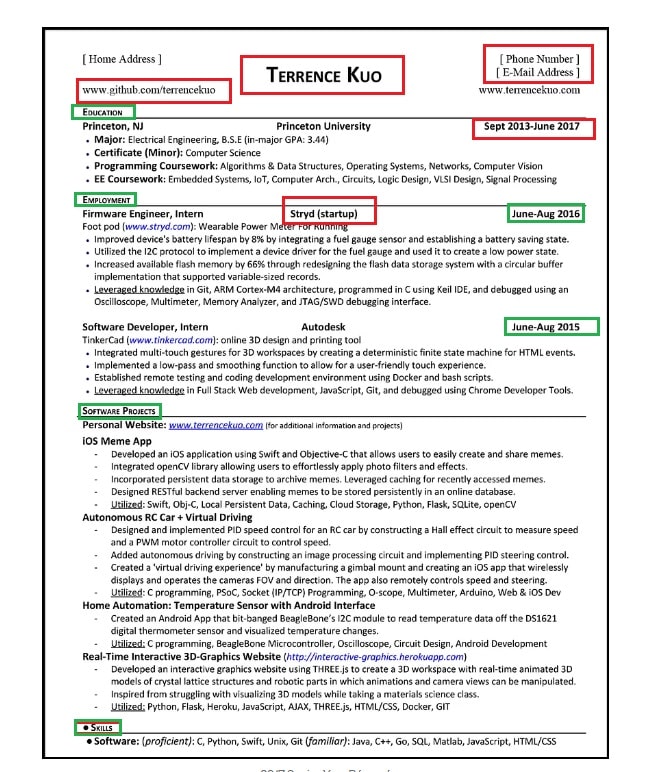As a career coach, I’ve seen countless job seekers struggle with the frustration of having their resumes rejected. Despite their best efforts, they’re left wondering what went wrong and how to improve their chances of getting noticed by hiring managers. In this article, we’ll explore the top reasons why resumes get rejected and provide actionable tips on how to avoid them.
Reason #1: Lack of Relevance
One of the most common reasons resumes get rejected is because they’re not tailored to the specific job being applied for. Hiring managers are looking for candidates who have the exact skills and experience required for the role, so if your resume doesn’t demonstrate relevance, it’s likely to get rejected.
Solution: Customize your resume for each job you apply for by highlighting the skills and experience that match the job requirements.
Reason #2: Poor Formatting
A poorly formatted resume can be a major turn-off for hiring managers. If your resume is difficult to read or doesn’t follow a standard format, it may get rejected.
Solution: Use a clean and simple format, with clear headings and bullet points to make your resume easy to scan.
Reason #3: Lack of Keywords
Many companies use applicant tracking systems (ATS) to screen resumes before they even reach a human recruiter. If your resume doesn’t include the right keywords, it may not make it past the ATS.
Solution: Use keywords from the job description in your resume, especially in your summary and skills section.
Reason #4: Typos and Grammar Errors
Typos and grammar errors can make a huge impression on hiring managers. If your resume is riddled with mistakes, it may get rejected.
Solution: Carefully proofread your resume multiple times before submitting it.
Reason #5: Lack of Achievements
Hiring managers want to see concrete achievements and results, not just a list of job responsibilities. If your resume doesn’t demonstrate achievements, it may get rejected.
Solution: Use specific numbers and metrics to demonstrate your achievements, such as “Increased sales by 25% in 6 months” or “Improved project delivery time by 30%”.
Understanding why resumes get rejected is crucial for improving your chances in the job market. Here’s a friendly FAQ to help guide you through common pitfalls:
FAQ: Why Resumes Get Rejected

Q1: What are some common reasons resumes are rejected?
A1: Resumes can be rejected for several reasons, including:-
- Lack of relevant experience: If your experience doesn’t align with the job description.-
- Poor formatting: Cluttered or confusing layouts make it hard for employers to read.-
- Spelling and grammatical errors: Typos create a negative impression and suggest carelessness.- Generic content: Resumes that lack personalization may not stand out in a competitive market.
Q2: Does length matter when it comes to resumes?
A2: Yes, absolutely!
- One page: Ideal for entry-level positions or those with limited experience.
- Two pages: Suitable for seasoned professionals with extensive experience.
- More than two pages: Often deemed excessive unless you’re in academia or research.
Q3: How important is it to tailor my resume for each job?
A3: Extremely important!
- Tailoring your resume indicates that you understand the role and are genuinely interested.
- Use keywords from the job description to ensure your resume passes Applicant Tracking Systems (ATS).
Q4: What if my job history is not linear?
A4: No worries!
- Highlight transferable skills: Focus on what you’ve learned and how it applies to the new role.
- Address gaps honestly and proactively.
Q5: Should I include every job I’ve ever had?
A5: No, it’s best to be selective.
- Aim to include only relevant positions that showcase your skills and experiences pertinent to the job.
- You can summarize older or unrelated positions briefly if necessary.
Q6: Is it important to include hobbies and interests?
A6: It depends!
- Relevant hobbies can add personality and show skills like teamwork or leadership, but irrelevant ones might clutter your resume.
- Consider the company culture before including them.
Q7: How can I make my resume stand out?
A7: Here are some tips:
- Use action verbs: Start bullet points with strong verbs like “Achieved,” “Managed,” or “Developed.”
- Quantify achievements: Numbers (like percentages or dollar amounts) demonstrate impact.
- Keep it concise: Aim for clarity while capturing the reader’s attention.
Q8: Can a poorly written cover letter affect my resume’s chances?
A8: Yes, your cover letter can create a first impression.
- If it’s poorly written, it may lead employers to view your resume with scepticism.
- Make sure your cover letter complements and enhances your resume.
Conclusion
Resumes get rejected for a variety of reasons, but by understanding the top reasons and taking steps to avoid them, you can increase your chances of getting noticed by hiring managers. Remember to customize your resume for each job, use a clean and simple format, include relevant keywords, proofread carefully, and demonstrate achievements. With these tips, you’ll be well on your way to creating a resume that gets noticed. I hope these FAQs help you navigate the resume writing process! Remember, your resume is a reflection of you, so make it shine!
About the Author
Linda Kaurji – As a career coach with over a decade of experience in the industry, I’ve helped countless job seekers navigate the complex world of job applications. With a background in human resources and a passion for helping others achieve their career goals, I’m committed to providing expert advice and guidance to job seekers of all levels.
